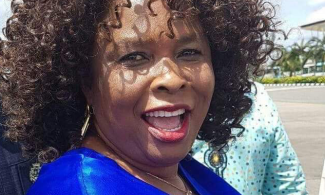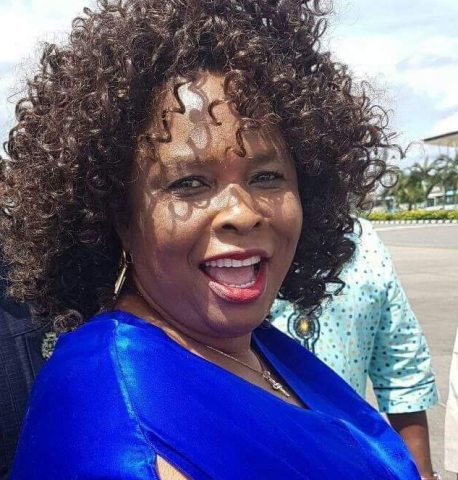
Jonathan, alongside Globus Integrated Services Ltd, Finchley Top Homes Ltd., Am-Pm Global Network Ltd, Pagmat Oil and Gas Ltd and Magel Resort Ltd and Esther Oba, was accused of unlawful activities and conspiracy.

Patience Jonathan, a former First Lady of Nigeria, has presented to the court some video clips as eveidence that the $8.4 million and N7.4 billion claimed to be proceeds of unlawful activities, were generated through legal means.
The video clips were presented Justice Mojisola Olatoregun of the Federal High Court in Ikoyi, Lagos, on Tuesday during the forfeiture hearing of the sums filed by the Economic and Financial Crimes Commission (EFCC).
On April 20 last year, Justice Olatoregun had given an order for interim forfeiture of the funds.
Jonathan, alongside Globus Integrated Services Ltd, Finchley Top Homes Ltd., Am-Pm Global Network Ltd, Pagmat Oil and Gas Ltd and Magel Resort Ltd and Esther Oba, was accused of unlawful activities and conspiracy.
N1.085billion and N226.3million discovered in Finchley’s Ecobank account, N39.4million also in Finchley’s Diamond Bank account, N55.9million discovered in Pagmat Oil and Gas Diamond Bank account are part of the funds handed over in the interim to EFCC.
Rotimi Oyedepo, counsel to EFCC called on the court to grant final handover of the funds to the Federal Government.
However, Chief Ifedayo Adedipe (SAN) countered the EFCC’s request saying hard evidence were not given by the anti-graft agency to convince the court that its application be granted.
Adedipe said the claims by EFCC that the funds are illegal proceeds does not hold water, noting that the agency failed in calling Patience to its office to reveal the source of the funds and the agency did not charge her for any offence.
Joining the defendant, Chief Mike Ozekhome (SAN), counsel to the companies involved in the case told the court that according to the provisions of the Advanced Fee Fraud Act, EFCC’s submission for the final handover of the funds was too early.
Ozekhome said that if the companies’ affidavits to show cause are deliberated upon and the court finds no merit in them, then the EFCC’s request could prove to be reasonable.
Ozekhome said an affidavit to show cause was filed by his clients, one of the companies displayed its certificate of incorporation, its board agreement that Patience Jonathan be made co-signer, and bank documents to show that accounts were signed by other individuals who are co-signers.
According to him, one of the companies implicated in the case rolled in income from the sale of groceries, drinks, lighting, among others, and that there was video evidence to back this claim up.
Hearing on the matter will continue on Wednesday.